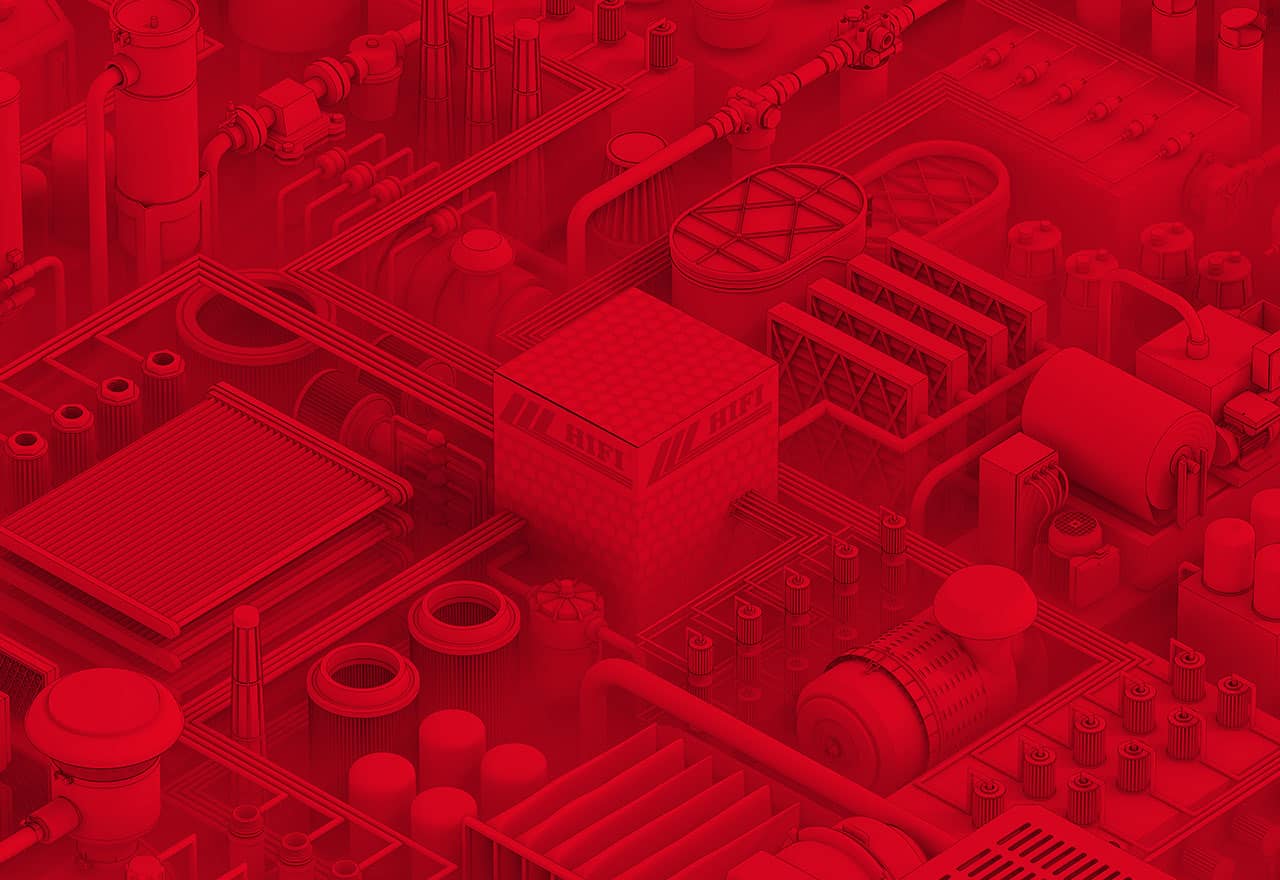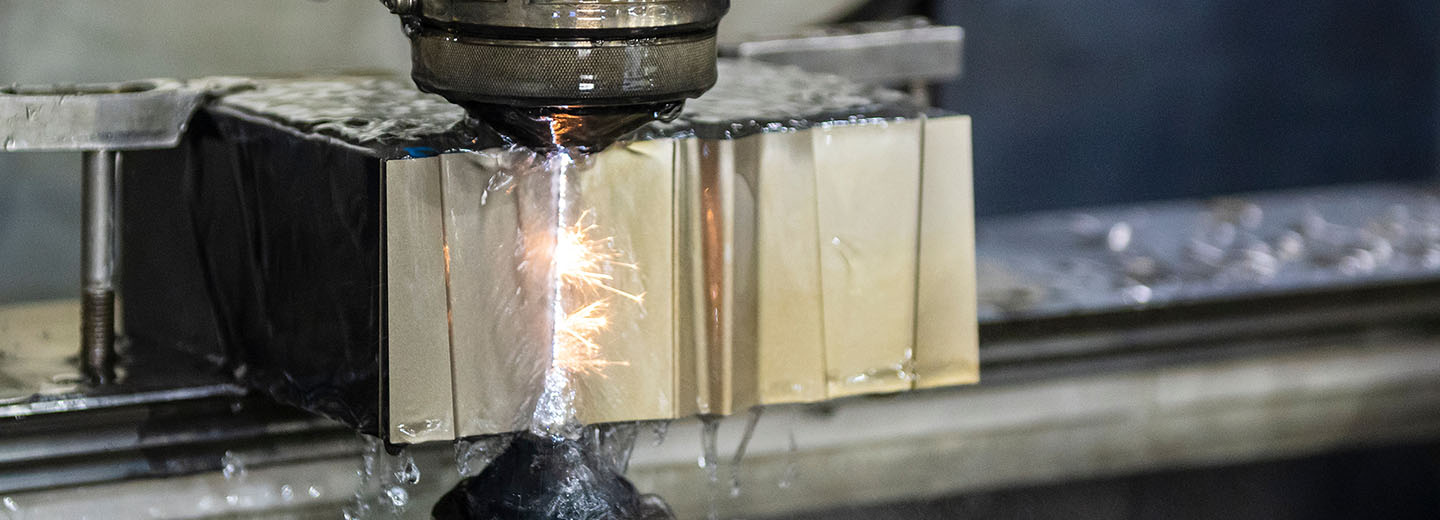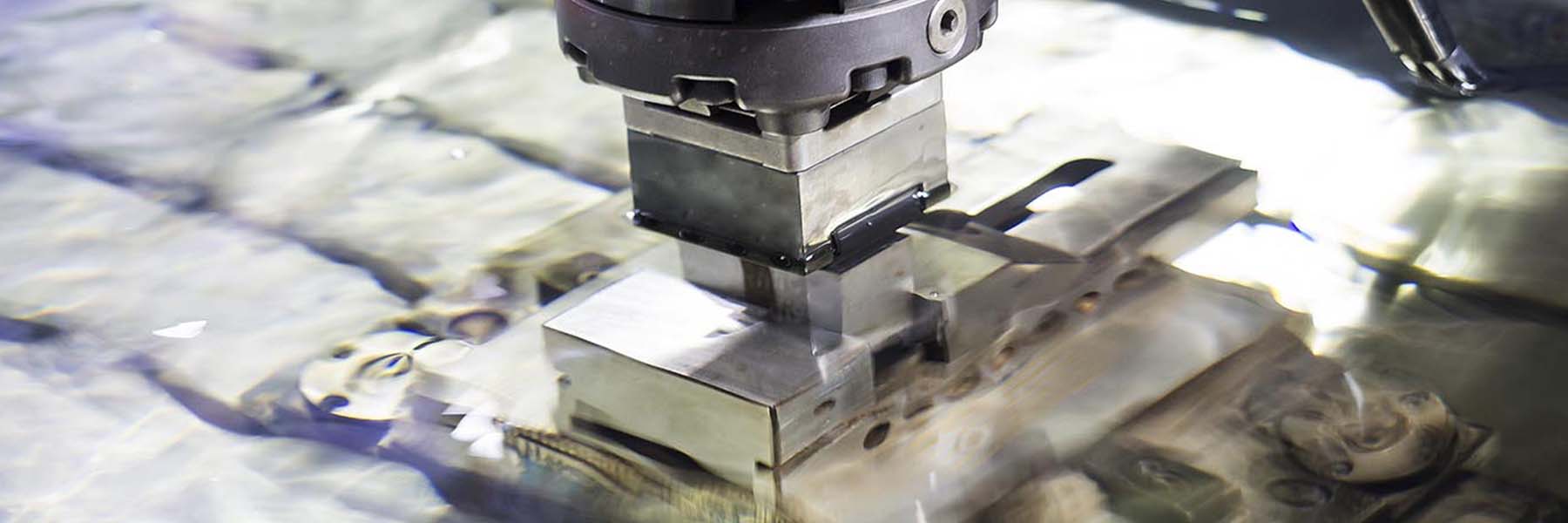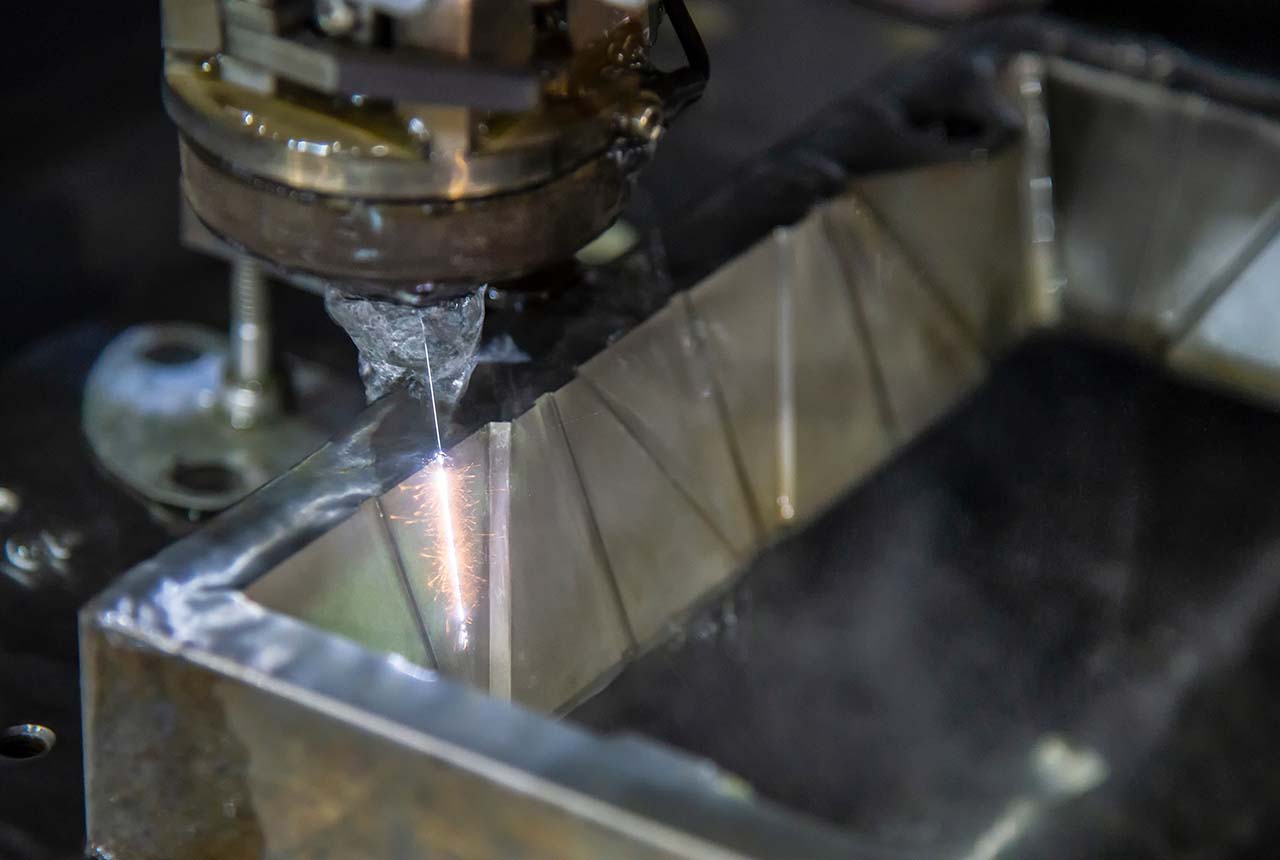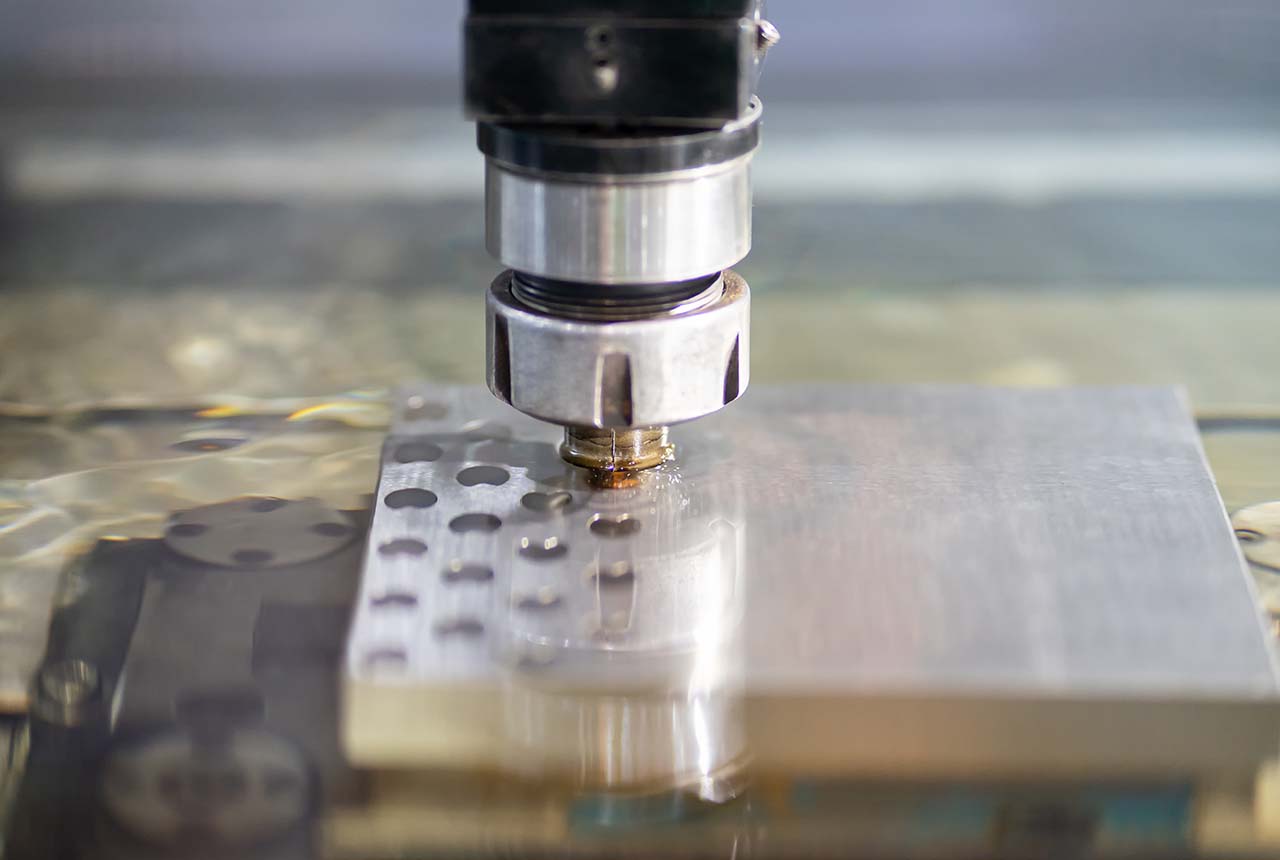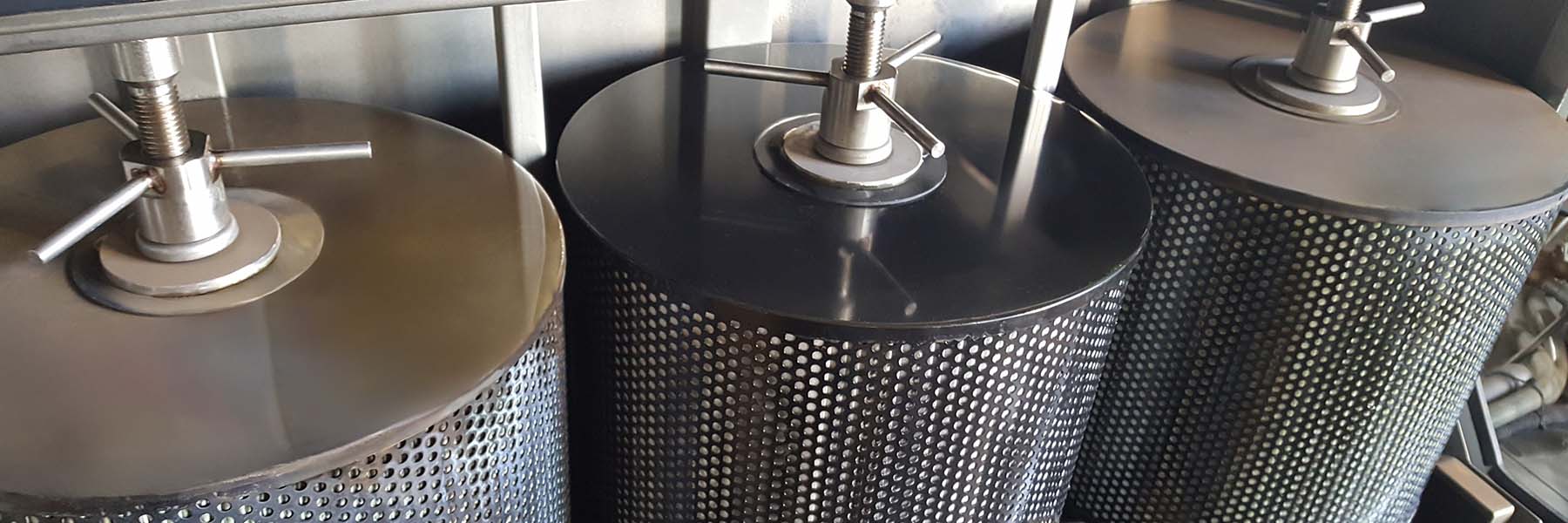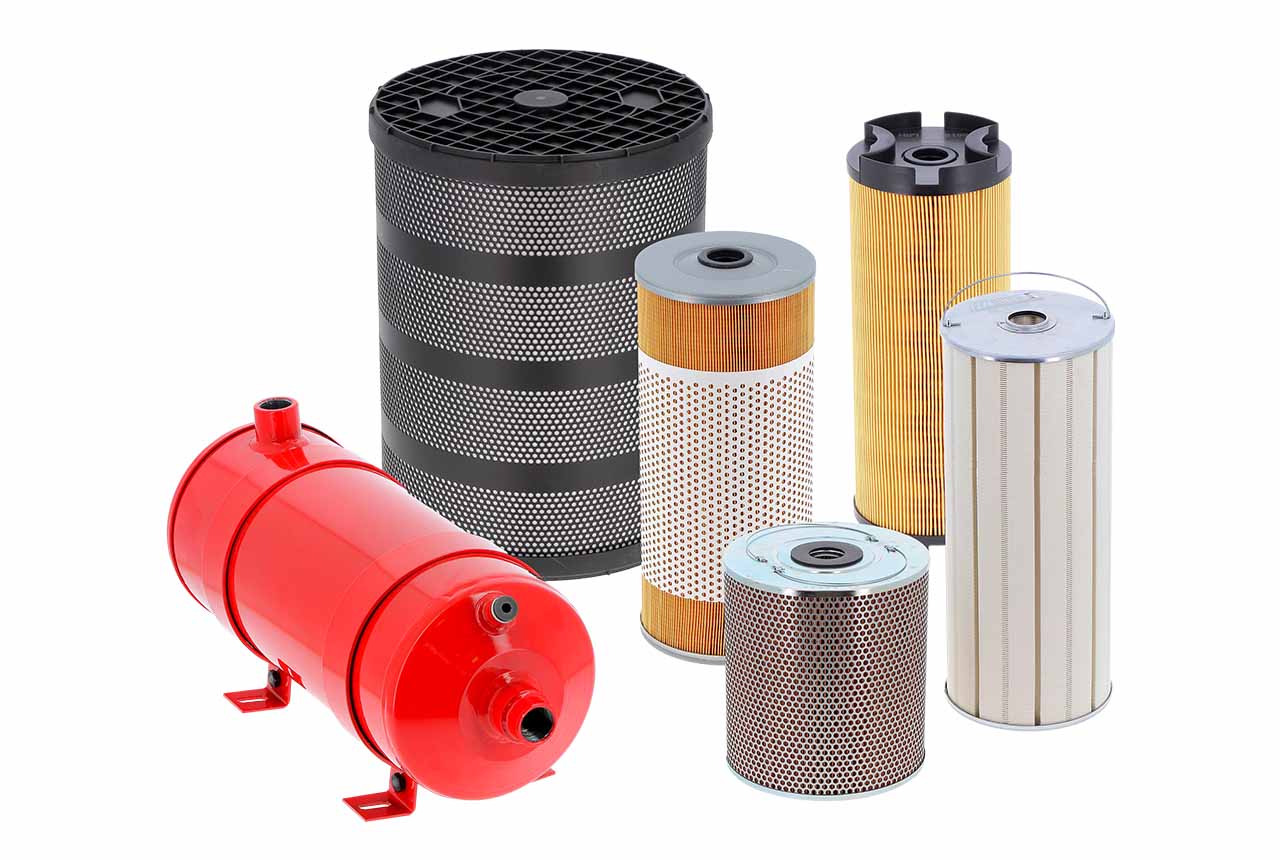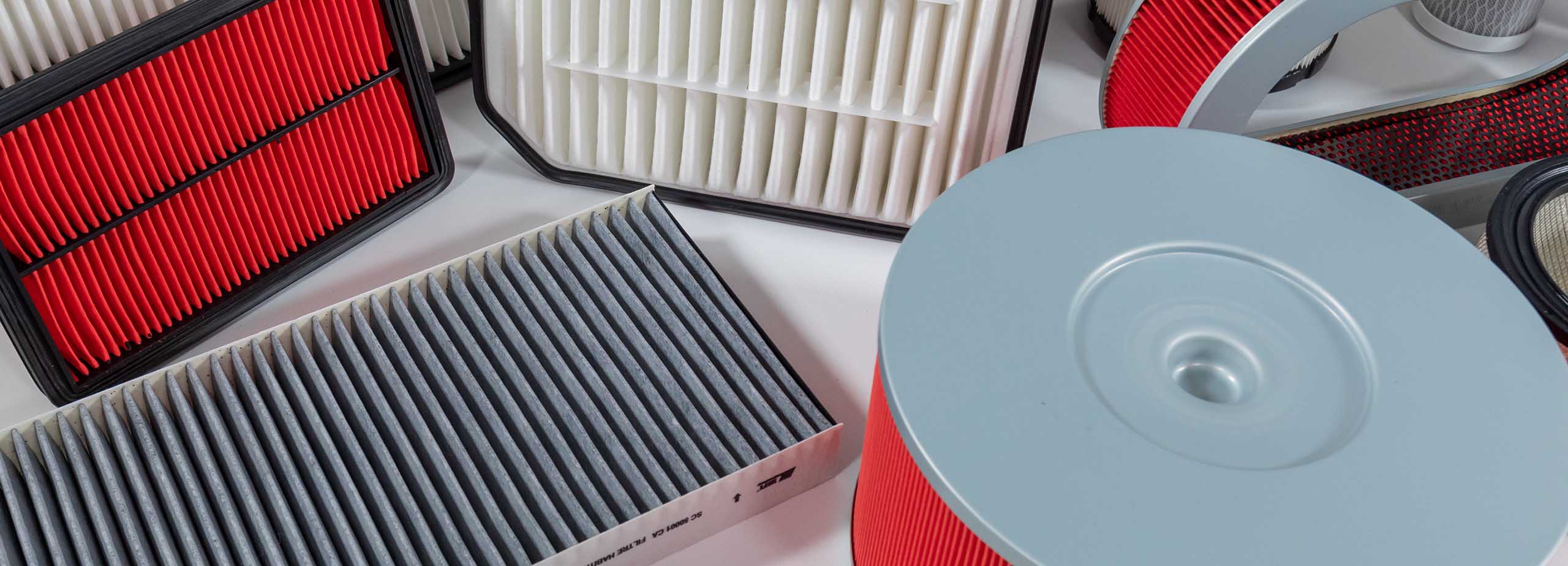Modern industry is full of processes for machining materials. Among these techniques, EDM stands out for its ability to shape hard, complex parts with unrivalled precision.
EDM (Electrical Discharge Machining) is a manufacturing method used to shape hard, conductive materials such as metals, alloys, carbides, graphites, etc. It is characterised by the use of an electric current to create complex, precision parts. Characterised by the use of an electric current, this process enables complex parts to be created with precision. It is used in a wide range of industries, from aerospace and automotive to tool and mould making.
How does it work?
The EDM process requires electricity, an electrode, a workpiece (which must be conductive) and a dielectric fluid. Unlike other machining methods, EDM requires no direct contact between the components. How is this possible? Thanks to the conductivity of the materials. When the gap between the electrode and the workpiece is reduced, an electrical discharge occurs between the two conductive elements. As it passes through the dielectric fluid, this electric current creates a "bubble" which then implodes. This micro-implosion works locally on the surface of the part. With successive discharges, several craters form on the surface, leading to continuous erosion of the part until the desired shape is obtained.
Types of EDM
There are two main types of EDM: wire EDM and sinker EDM.
Wire EDM
Wire EDM or "wire cutting" uses a conductive wire as the electrode. This is usually made of brass, copper or similar conductive materials. In practice, as the wire approaches the workpiece, electrical discharges occur between the two elements, progressively eroding the workpiece material. Wire EDM is particularly suitable for cutting thick materials or creating complex contours with great precision.
Die-sinking EDM
Still without physical contact, an electrode with a specially designed shape approaches the workpiece, electrical discharges are produced and the material is eroded until the initially desired shape is obtained. This process is commonly used to machine very hard materials, high-precision cavities and special shapes, as well as holes using a tubular electrode.
The dielectric fluid: the central element of EDM
Dielectric fluids play an essential role in the EDM process. These insulating fluids have three key functions that guarantee efficient and safe operations:
- The dielectric fluid provides electrical insulation, preventing electrical discharges from being dispersed between the electrode and the workpiece.
- It cools the electrode to prevent premature wear and stabilises the temperature of the workpiece.
- The dielectric fluid removes machining particles from the gap to ensure a clean surface finish.
Dielectric fluids are therefore proving to be invaluable allies in the field of EDM, guaranteeing high-precision operations and increasing machine life. However, a dielectric fluid is only fully effective if it is clean. Good filtration of the fluid is therefore essential.
Electroerosion is not the only area of expertise for HIFI FILTER® in the industrial sector.
We also offer products dedicated to filtration in areas such as machining, cutting, plastic injection and printing. Together, we ensure that all the fluids involved in the operation of your machine tools are filtered, guaranteeing the reliability, durability and optimum performance of your equipment.

